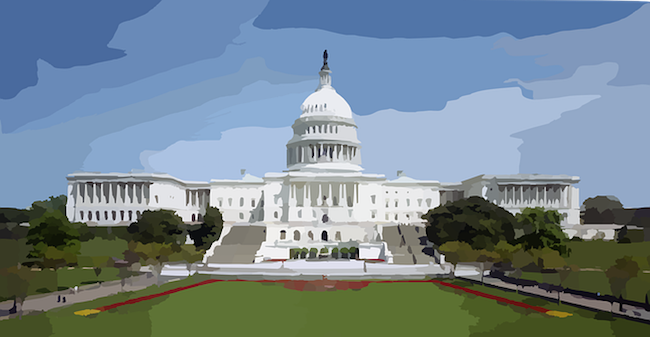House Democrats Use January 6 Inquisition To Provoke Major Court Battle Over Executive Privilege By Sean Davis for The Federalist
Democrats on the January 6 inquisition are setting up a massive and murky legal fight over executive privilege, legal experts and insiders told The Federalist.
House Democrats are using their January 6 inquisition to provoke a major court battle over executive privilege, multiple legal experts told The Federalist. At issue is whether a non-legislative congressional committee can pierce not just executive privilege, but also attorney-client privilege, of a former president, and grand jury secrecy requirements. While House Democrats have pushed the narrative to corporate media that it’s an open-and-shut case against former President Donald Trump, the reality is that many of the specific legal claims at issue have never been directly litigated or ruled on by the Supreme Court, while others have been decided in favor of those arguing for broader protection of records and communications covered by executive privilege, even for former presidents.
Democrats on the House’s January 6 investigative committee kicked off the fight last week by issuing a flurry of subpoenas of former Trump White House officials and then pushing a narrative to compliant corporate media that the decision of whether to recognize executive privilege belonged solely to current president Joe Biden. Democrat Rep. Jamie Raskin, for example, went so far as to claim, without evidence, that there is “no such thing as a former president’s executive privilege.” The goal of this push, insiders say, is to bully the Biden White House into abandoning its own institutional interest in protecting executive privilege by handing over every last record demanded by House Democrats.
However, significant legal and logistical obstacles will likely frustrate the Democrats’ plans to get their hands on Trump-era records and communications, legal experts deeply familiar with executive privilege litigation told The Federalist. The legal ground has been shaped primarily by the 1978 Presidential Records Act statute, which governs the mechanics of preserving and disseminating White House records, as well as three major Supreme Court cases: United States v. Nixon (1974), Nixon vs. GSA (1977), and Trump v. Mazars (2019).
The first case, often referred to as Nixon I, established the principle that in some cases the judiciary can pierce the veil of executive privilege to get access to certain presidential records. The second case, generally referred to as Nixon II, established that executive privilege does, in fact, apply to former presidents. In the Mazars case, which tackled the question of whether Congress had a right to demand certain presidential records, the Supreme Court significantly narrowed Congress’s ability to demand records by ruling that Congress must have a legitimate legislative justification for demanding presidential records irrespective of any claims of executive privilege.
The Presidential Records Act, which was originally passed in the wake of Nixon II and amended through the years, set the rules by which the National Archives and Records Administration, or NARA, manages all presidential records. This includes the collection, scanning, organization, and dissemination of records to various requesting parties, as well as certain time limits on the availability of presidential records. At the end of a presidential administration, NARA takes physical possession of all records, which are off-limits to the public for at least five years and potentially up to 12 years, and begins the Herculean process of scanning and organizing them for future access and research.
Under the normal process, NARA would receive requests for records, prepare a list of all the responsive records and their contents, and then pass those along to the current presidential administration and representatives for the administration whose records were being requested. Each side would then examine the records and provide a list of the records or information that they believe should be withheld under various claims of privilege (e.g., executive, deliberative process, attorney-client, and so on). In the event of a disagreement between the two parties, the current president would be left with the ultimate decision of what to withhold or divulge.




